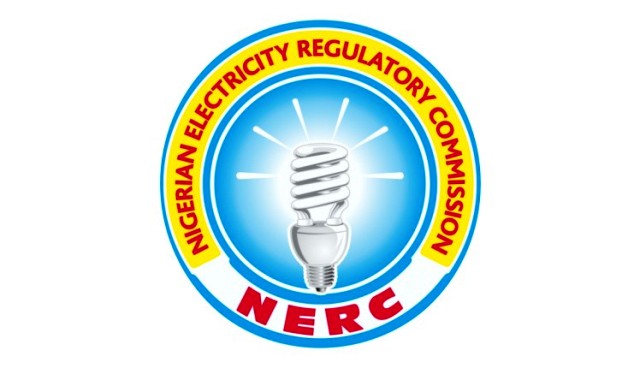News
Publish Assets Within Seven Days, SERAP Tells Buhari, VP, Govs

The Socio-Economic Rights and Accountability Project (SERAP) has given President Muhammadu Buhari, Vice-President, Professor Yemi Osinbajo, and 36 state governors seven days to declare public their assets.
SERAP gave the ultimatum in a statement issued yesterday signed by its Deputy Director, Kolawole Oluwadare. It said: “The Constitution of Nigeria 1999 (as amended), the FoI Act, and the African Charter on Human and Peoples’ Rights, which is part of our laws, read together, impose transparency obligations on all public officials to publicly disclose information concerning their asset declarations submitted to the CCB, and to clarify any updated review of such assets.”
The group noted that the non-public disclosure by public officials of their summary of assets undermines the integrity of Buhari’s administration.
SERAP added that the disclosure of assets prevents corruption and exposes unexplained wealth of officials.
The statement read: “President Muhammadu Buhari, Vice-President Professor Yemi Osinbajo, 36 state governors and their deputies should use their good offices to: provide information on summary of the assets, specifically property and income, contained in your asset declaration forms submitted to the Code of Conduct Bureau (CCB) since your assumption of office.
“SERAP is also asking them to clarify within 7 days of the receipt and/or publication of this letter, if you have had any reason to review and update the asset declarations submitted to the CCB, and to provide the summary of any such review; failing which we will take all appropriate legal action to compel you to comply with our request.
“The summary of assets to be disclosed include, where applicable, the following: savings and other liquid assets, all immovable property and shares and actions in any private and public companies; property purchased by way of tender from any public-law entities and information about businesses owned.
“The non-public disclosure by public officials of their summary of assets seriously undermines the effectiveness and integrity of the constitutional and statutory obligations to submit asset declarations, especially given that declarations are designed to curb grand corruption.
“The non-disclosure of assets also undermines the authority of the CCB and weakens the public trust in the asset declaration regimes.
“In the specific FoI request to President Buhari, SERAP noted his “public promise to make specific details of your assets public, and urge you to consider this FoI request as a unique opportunity to fulfil the promise made to the Nigerian people.
“The various FoI requests read in part: “Our FoI request does not clash with the rights to privacy and data protection. Both rights are not absolute and can be restricted provided there is a basis in law and a legitimate public interest justifies the restriction.
“Prevention of grand corruption and exposing unexplained wealth of officials are serious and legitimate public interests.
“We would also like you to clarify if you have encouraged members of your cabinet to also submit their asset declarations to the CCB and to make such declarations public. If so, we would like you to provide information on the details of those that have made submissions.
“We would also like you to clarify whether a declaration has been submitted as constitutionally and statutorily required, the date of any such submission, and if you have received any confirmation of the verification of your asset declaration by the CCB.
“The general public has a legitimate interest in ascertaining and scrutinising the veracity, exactitude and honesty of information contained in asset declarations submitted by public officials to the CCB. Without public disclosure of summary of assets, this would have no practical importance.
“Public disclosure of summary of assets submitted to the CCB would help uncover any irregularities and trigger formal verification of declarations by the CCB and other anti-corruption agencies.
“The information requested is the summary of assets submitted to the CCB pursuant to constitutional and statutory provisions. Providing the information will meet the constitutional objective of giving the public a reasonable picture of your detailed asset declaration lodged with the CCB as well as serve the purpose of providing a safeguard against abuse of the asset declaration process.
“This would in turn serve as an incentive to public officials to provide exact information when filing and submitting their asset declarations.
“The advantages that the general public would gain from being informed about the summary of assets declaration submitted to the CCB outweigh any inconvenience that may occur if the information is disclosed, pursuant to our FoI request.
“We believe that the Nigerian Constitution, the FoI Act and the African Charter grant the right to obtain information on the summary of assets of all public officials occupying a position of trust and discharging public functions.
“Any perceived claim of interference with the right to privacy are sufficiently foreseeable for the purposes of the legal requirements for asset declarations by public officials, given that public-disclosure of summary of assets would undoubtedly contribute to the legitimate aim of asset declaration regimes to prevent corruption, as it would ensure transparency regarding the details of those assets.
“SERAP notes that a decision to run for public office is an occasion when people knowingly or intentionally involve themselves in activities which are or may be recorded or reported in a public manner.
“It is in the nature of the democratic political process that Nigerians may legitimately be interested in the conduct of public officials. The issue of the asset declarations of persons holding public offices is one of legitimate public interest and concern, and serves the purpose of ensuring transparency in the exercise of public functions.
News
Tinubu Orders Security Chiefs To Restore Peace In Plateau, Benue, Borno

President Bola Tinubu has ordered a security outreach to the hotbeds of recent killings in Plateau, Benue and Borno States, to restore peace to areas wracked by mass killings and bomb attacks.
National Security Adviser, Nuhu Ribadu, disclosed this to State House correspondents after a four-hour security briefing with the President at the Aso Rock Villa, Abuja on Wednesday.
“We listened and we took instructions from him. We got new directives…to go meet with the political authorities there,” Ribadu told reporters, adding that Tinubu directed them to engage state-level authorities in the worst-hit regions.
Director-General, National Intelligence Agency, Mohammed Mohammed; Chief Defence Intelligence of the Nigerian Army, Gen. Emmanuel Undianeye; Director-General, Department of State Services, Oluwatosin Ajayi and Chief of Staff to the President, Femi Gbajabiamila, appeared for the briefing.
The Tide’s source reports that in Plateau State, inter-communal violence between predominantly Christian farmers and nomadic herders spiralled into gory slaughter when gunmen stormed Zikke village in Bassa Local Government early on April 14, killing at least 51 people and razing homes in a single night.
In Benue, at least 56 people were killed in Logo and Gbagir after twin assaults blamed on armed herders.
Meanwhile, in Borno State, eight passengers perished and scores were injured when an improvised explosive device ripped through a bus on the Damboa–Maiduguri highway on April 12.
Ribadu explained that after an extensive briefing, intelligence chiefs received fresh instructions to restore peace, security and stability across Nigeria.
“In particular, Tinubu had ordered immediate outreach to the political authorities in Plateau, Benue and Borno States, and the defence team had gone round those States to carry out his directives and report back.
“We gave him an update on what has been the case and what is going on, and even when he was out there, before coming back, he was constantly in touch. He was giving directives. He was following developments, and we, in charge of the security, got the opportunity today to come and brief him properly for hours. And it was exhaustive.
“We listened and we took instructions from him. We got new directives. The fact is, Mr. President is insisting and working so hard to ensure that we have peace, security and stability in our country. We gave him an update on what is going on, and we also assured him that work is ongoing and continues.
“We also carried out his instructions. We went round, the chiefs were all out where we had these incidents of insecurity in Plateau State, Benue State, even Borno, these particular three states, and we gave him feedback, because he directed us to go meet with the political authorities there,” the NSA explained.
Ribadu described Tinubu as “worried and concerned,” and said he directed that all security arms be deployed around the clock.
The government, he added, believes these steps have already produced measurable improvements, even if the situation is not yet 100 per cent safe and secure.
“He’s so worried and concerned, he insisted that enough is enough, and we are working and to ensure that we restore peace and security and all of us are there. The armed forces are there, the Civil Police, intelligence communities, they are there.
“They are working there 24 hours, and we feel that we have done enough to believe that we are on the right course, and we’ll be able to be on top of things,” Ribadu stated.
The NSA emphasised that combating insecurity was not solely a Federal Government responsibility.
He stated, “The issue of insecurity often is not just for the government. It involves the subunits. They are the ones who are directly with the people, especially if some of the challenges are more or less bordering on community problems.
“Not entirely everything is that, but of course it also plays a significant role. You need to work with the communities, the local governments, and the governors, especially the governors.
“The President will continue to direct that. We should be doing that, and that’s what we are able to. We are very happy and very satisfied with the instructions and directives given by Mr. President this evening.”
In Borno State, the NSA noted that while violence had surged in recent months, the insurgents refused to accept defeat.
He warned that most recent casualties there resulted from improvised explosive devices—”cowardly” IED attacks targeting civilians—and from opportunistic raids that follow any lull in fighting.
“We are getting the cooperation of the leadership at the state level, and everybody. It’s not 100 per cent…but we are going there.
“When you are having peace and you are beginning to get used to it, if one bad incident happens, you forget the periods that you enjoyed peacefully,” he added.
He paid tribute to the “many who do not sleep, who walk throughout, who do not go for any break or holiday”—the soldiers, police and intelligence officers whose sacrifices have created the fragile calm Nigerians now experience.
“They will continue to be there,” he said, adding, “Things have changed in this country…we are on the right track and we will not relent. We will not sit down; we will not stop until we are able to achieve results.”
News
FG Laments Low Patronage Of Made-In-Nigeria Products

A Federal Government agency – the National Agency for Science and Engineering Infrastructure, has decried the low patronage of Nigerian-made products by Nigerians.
The agency identified some challenges leading to the low patronage of the local products as affordability and public perception, among others.
Speaking during a stakeholders meeting organised by the agency in Akure, Ondo State capital, yesterday, the Deputy Director of Engineering at NASENI, Mr Joseph Alasoluyi, said Nigerians preferred buying foreign goods compared to local goods.
Alasoluyi, however disclosed that the agency had trained over 50 participants in the production of hand-made products, in a bid to ensure Nigeria-made products are patronised.
He explained that NASENI was set up to promote science, technology, and engineering as a foundation for Nigeria’s development and currently operates 12 institutes nationwide to achieve its objectives.
According to him, the aim of President Bola Tinubu, who is also the overall chairman of NASENI, was to ensure high production and patronage of “our local products thereby creating employment opportunities for many.”
He said, “The idea of this programme is to interface to ensure we produce products using our indigenous technology. This is what NASENI is out for, to ensure that homegrown technologies are encouraged.
“We are out there to ensure we integrate efforts to ensure that local technology is used to develop products within the resources we have.
“ The NASENI’s ‘3 Cs’ – Creation, Collaboration, and Commercialisation – that define NASENI’s strategic mandate: Creating innovations through research, Collaborating with partners to develop and refine products, and Commercialising these solutions to benefit the economy.
“Our achievements include the development of solar irrigation systems, CNG conversion centres, building machines capable of producing up to 1,000 blocks per hour, 10-inch tablets, locally made laptops, and electric tricycles (Keke Napep) set for market launch.”
In his remarks, the Deputy Vice Chancellor of the Federal University of Technology, Akure, Prof. Samuel Oluyamo, blamed the Federal Government for not properly funding research in the varsities, also noting that many research outputs were left halfway due to lack of funding and weak linkages between research institutions and industry.
Oluyamo also queried the Federal Government’s commitment to funding research and development, saying many academic innovations remained on the shelve due to a lack of support for commercialisation and poor infrastructure.
“Until we upscale research into mass production, technological growth will remain elusive. The government is not funding research in the universities enough. Thank God for TETfund that is trying in this regime. The major interest in beefing up research in universities and research institutions is really not there,” he said.
News
Nigeria Seeks Return To JP Morgan Bond Index
The Director-General of the Debt Management Office, Patience Oniha, has said that Nigeria is in advanced discussions with JP Morgan to re-enter the Government Bond Index and renew investors’ confidence.
Oniha disclosed this on Wednesday at a Nigerian Investors’ Forum on the sidelines of the World Bank and International Monetary Fund Spring Meetings in Washington, D.C.
The DMO boss explained that Nigeria has enjoyed favourable credit assessment among rating agencies in recent times on the back of the sweeping reforms initiated by the Central Bank of Nigeria.
Fitch Ratings recently upgraded the Long-Term Issuer Default Ratings of seven Nigerian banks and two bank holding companies to ‘B’ from ‘B-‘, noting that the outlooks are Stable.
The affected issuers are Access Bank Plc, Zenith Bank Plc, United Bank for Africa Plc, Guaranty Trust Bank Limited, Guaranty Trust Holding Company Plc, First HoldCo Plc, First Bank of Nigeria Ltd, Fidelity Bank Plc and Bank of Industry Limited.
The upgrades of the Long-Term IDRs of the banks followed the recent sovereign upgrade and reflect Fitch’s view that Nigeria’s sovereign credit profile has become less of a constraint on the issuers’ standalone creditworthiness, the rating agency said.
Fitch also upgraded Nigeria’s Long-Term IDRs to ‘B’ from ‘B-‘ on 11 April, a decision that reflected increased confidence in the government’s broad commitment to policy reforms implemented since its move to orthodox economic policies in June 2023, including exchange rate liberalisation, monetary policy tightening and steps to end deficit monetisation and remove fuel subsidies.
“These have improved policy coherence and credibility and reduced economic distortions and near-term risks to macroeconomic stability, enhancing resilience in the context of persistent domestic challenges and heightened external risks,” Fitch said.
Nigeria was removed from the JP Morgan index in 2015 ostensibly due to its deviation from orthodox monetary policies and influence of capital control in its management of foreign exchange.
Principally due to reduction in oil revenues at the time, Nigeria introduced currency restrictions to defend the naira after it failed to halt a dangerous slide with burning of dollar reserves. The bank had earlier warned Nigeria to restore liquidity to its currency market in a way that allowed foreign investors tracking the index to conduct transactions with minimal hurdles.
“Foreign investors who track the GBI-EM series continue to face challenges and uncertainty while transacting in the naira due to the lack of a fully functional two-way FX market and limited transparency,” the bank said in a 2015 note.
Nigeria was listed in JP Morgan’s emerging government bond index in October 2012, after the Central Bank removed a requirement that foreign investors hold government bonds for a minimum of one year before exiting.
The JP Morgan Government Bond Index reflects investor confidence and opens doors to billions of investment flows, making Nigeria’s proposed re-entry a positive signal to the market and investors.
Oniha explained that talks with JP Morgan were ongoing and had gained momentum in recent times due to the stability created by the FX market reforms.
“With all the reforms that have taken place, particularly around FX, we have started engaging JP Morgan again to get back into the index. We think we are eligible now,” the DMO DG said.
-
Niger Delta2 days ago
Engage Intellectually On Ijaw Struggle, Dep Gov Urges IYC
-
Business2 days ago
Include Adolescent Nutrition In National Policy – Nutritionist
-

 Politics2 days ago
Politics2 days agoOborevwori, Okowa Dump PDP For APC
-
News2 days ago
Russia’s Biggest Strike On Kyiv Kills Nine
-
Rivers3 days ago
‘Slave Warriors’ Puts PH In News, Projects African Culture
-
Politics2 days ago
Obi Mourns Late Pope, Joins Dignitaries At Vatican City
-
Business2 days ago
NACCIMA Proposes Hybrid Oil Palm Seedlings For Farmers
-

 News2 days ago
News2 days agoFG Laments Low Patronage Of Made-In-Nigeria Products






